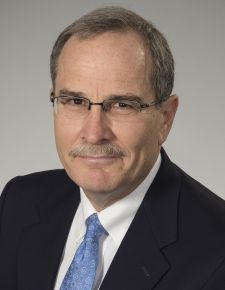 Ochsner Health System in New Orleans has catapulted itself into the front lines of hospital innovation in the last few years as an early Apple HealthKit adopter, with its in-house "O Bar" app store, and with an initially successful blood pressure monitoring trial, the details of which Chief Clinical Transformation Officer Richard Milani shared at MobiHealthNews' event in June.
Ochsner Health System in New Orleans has catapulted itself into the front lines of hospital innovation in the last few years as an early Apple HealthKit adopter, with its in-house "O Bar" app store, and with an initially successful blood pressure monitoring trial, the details of which Chief Clinical Transformation Officer Richard Milani shared at MobiHealthNews' event in June.
At the DPharm Disruptive Innovations US conference in Boston today, Milani revealed that the hypertension trial has gone well enough that Ochsner has started the process of desiging interventions for two more chronic conditions: COPD and diabetes.
"We’re monitoring the air quality, the environmental factors, pollen count in every zip code in the nation," Milani said. "Depending on the severity of COPD or asthma, you answer a question about what time you typically wake up, and we’ll send you a text message at that time that says, today you have to be careful. Or if you’re in the very severe category, we might text you with two questions a week. How’s your breathing doing? And if we notice you’re using your respiratory inhaler more -- and that’s all connected now -- and your symptoms are worsening, we’ll intervene right there before you end up in the hospital."
In a fireside chat with Jeffrey Kasher, founder of research advocacy group Patients Can't Wait, Milani shared a number of lessons learned in the launch and deployment of Ochsner's hypertension program.
For one, he stressed that the best ally a program can have are enthusiastic early physician adopters. While Ochsner typically does pilots in one region and roles them out in others if they're successful, in this case they solicited excited physicians in all regions and started programs across the health system.
"We went to physicians who were the early adopters across the system and let them get started with the program," he said. "They then were champions for the next group of physicians, and the next group of physicians."
Second, he said, you should never expect patients to give you more than you're giving them.
"I can tell you from the people at Apple that the ResearchKit groups that do well are not just asking for data all the time, they’re sending something back to patients to make it continuously worthwhile. They’re giving you information that you can use. The ones that have dropped off dramatically are the ones saying 'give me this, give me this, give me this.' [Our effort at Ochsner] is not ResearchKit, but we’re sending patients text messages, we’re talking to patients, they’re getting feedback about what they’re doing. That works. This is a trade. If you give me something, I’m going to give you somethign back. That’s what people are looking for."
Even if you've set up a trade, the less you can ask of patients the better. That's why Milani is excited about passive monitoring, such as the use of connected inhalers in the COPD program.
"There’s a lot of covert information that can be obtained that doesn’t involve patients having to do hundred pushups a day to get you this information," he said. "So you want to make the information requirements as minimal as possible and as easy as possible. If we can actually pull that off, it becomes very successful and people are happy to do it because they’re seeing results from it."
Finally, Milani said he's learned that social support is one of the biggest factors in behavior change. Involving patients' family and friends can be the difference between them being an engaged patient who tracks their vitals or not.
"The more you can involve other people in your behavior change, the more likely you are to succeed," he said.

















